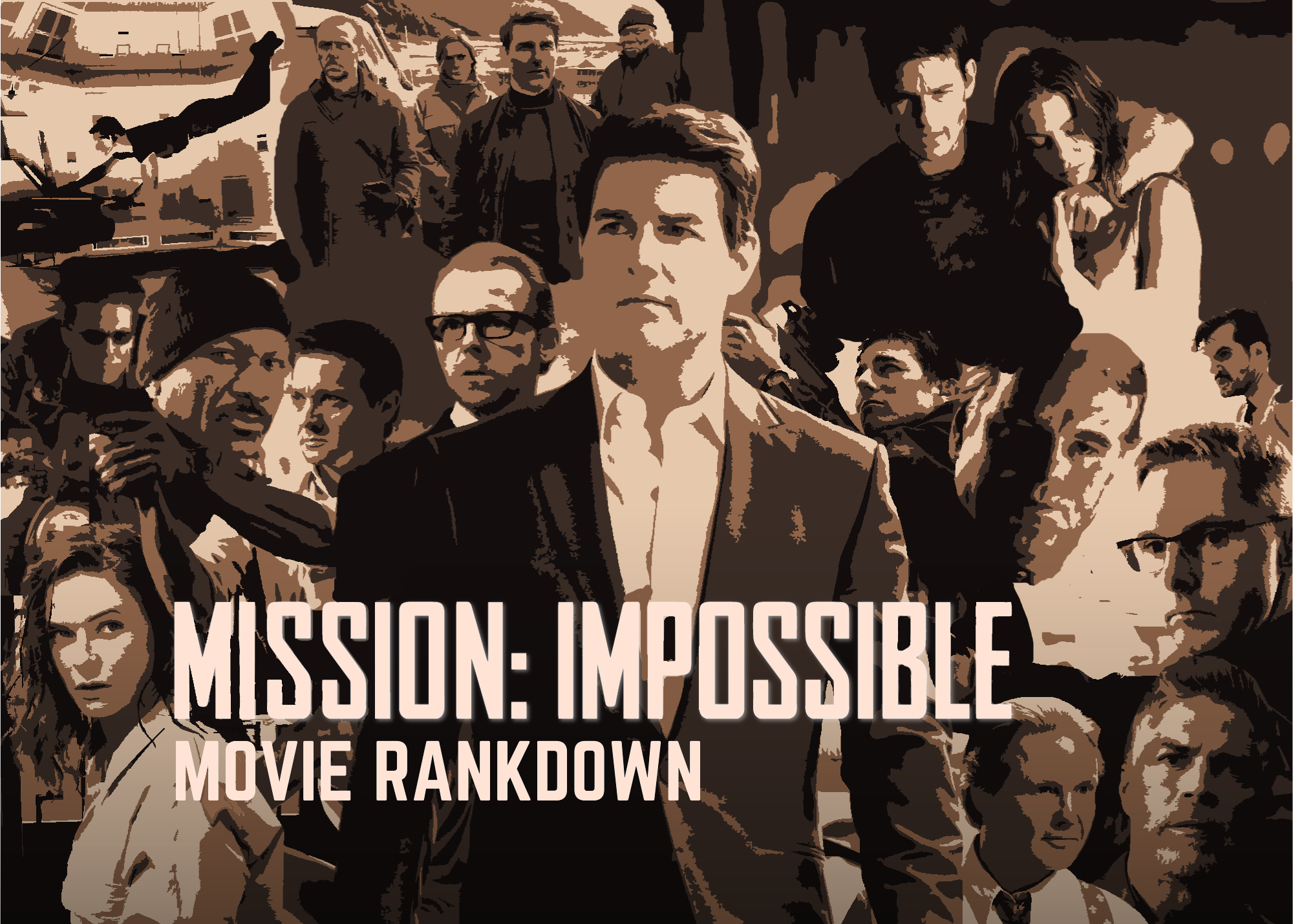"Ordinary People" Retrospective: A Vital Lesson On the Mental Health Crisis
Robert Redford's controversial Best Picture winner is more important now than ever.
RetrospectiveOn The Bachelor’s 22nd season, during a group hike in Lake Tahoe, Marikh Mathias used her compass mirror to touch up. Competitor Chelsea Roy, baffled by vanity in the great outdoors, mocked Mathias. After the scenes got displayed at the reunion special, the two women debated Roy's jabs.
The concept is simple: deriding a woman's external efforts undermines the patriarchal defiance that has characterized a generation. In other words: “glam shaming.”
The discussion sparked actual debate over this new term, which joined “slut” and “body” on the developingMount Rushmore of societal shaming. Was it real? Was it true? Was it applicable to a rainy hike in Lake Tahoe with a washed-up racecar driver?
Our expectations for women could get discussed to death. Yes, we expect them to appear a certain way and to cater to our sensibilities. Do not pronounce or enhance your physicality; carry yourself with class, grace, and poise. It's unfair, but being so intent on victimization as to label harmless teasing “glam shaming?" Come on.
It was another entry in a long line of melodramatic buzzwords coined by self-conscious attention-seekers to imply disproportionate severity to their experiences. Valid remarks on nationwide obesity were “body shaming.” Every dissenting opinion, interaction, or experience was “toxic,” “triggering,” or a “mental health crisis.”
The reality is much simpler: we want our feelings to matter more than they do, and exacerbating them to elicit sympathy is foolish. It instills the belief we are more important than we are instead of living our lives with a strong spine holding us upright.
Movies have taken note of this societal shift and now force false representation and trendy terminology into entertainment. Rarely do they offer a sincere take that works our nonsense through a sieve to sort the genuine humanity from our self-importance. We believe ourselves better equipped to tackle issues than ever, but we are wrong. Today we misfire. Amazingly, it is 1980 where we find something worthwhile.
Ordinary People is the story of the Jarretts: father Calvin, mother Beth, and son Conrad, an upper-class Chicago family whose suburban lives get upended by the death of eldest son Buck and Conrad’s attempted suicide. As Calvin and Beth deal with the trauma conflictingly, Conrad navigates his new reality as the world they all knew becomes a distant memory, and their new existence becomes harder to bear.
It is a clash between the internalizing philosophy of the Silent Generation and the rising phenomenon of psychotherapy. Beth's icy reserve repels every attempt to penetrate her mind, keeping issues at bay until time heals them or renders them so distant that dwelling is just as much a thing of the past as the tragedy. No matter how much empathy Calvin shows Conrad, the philosophical divide between those who want to understand and those too afraid to act cannot find resolution.
Even Beth's strained comfort is not remorse. She cannot apologize to Calvin for questioning what he wore to Buck’s funeral or see Conrad’s perspective when he chastises her for not visiting him in the hospital. Her outlook is cruel and selfish; the more empathy her husband tries to elicit, the colder she becomes, swinging between losing the favored son and the confusion of unfamiliar problems. Conrad is not someone she appreciated at his best; now, in his darkest hour, she's repulsed. He embodies all her loss: not just a son, but the comfort of security. She has lost the solace of being ordinary.
Of course, tragedy is ordinary. We combat that notion by relishing the good like Calvin does as he visits Conrad's therapist or forces conversations of school grades or social life to instill normalcy in a child teetering on the brink.
If we can restore the familiar, we can act as Beth, writing off the bad as deviations from a plan that otherwise runs smoothly. Eventually, we realize the greatest tragedy is not death or heartache but how those things irreversibly change our lives. We can never recapture the past or who we were before. We lived based on who we were, and now the world tells us that person does not get to exist: we must change. We must adapt.
But in a traumatized home, experienced by vastly different people, the seemingly unified family gets exposed as a conceptual product. Calvin, Beth, and Conrad are water of the womb; their bond is thin. No matter how deep love runs, it cannot overcome the small choices that undermine it, intention aside. Focusing all our attention on one child means neglecting the other. Adjusting our approach depending on the person means sacrificing an overarching message that resonates with those who need us most. Moving forward like all is well means pretending the truth isn't forcing itself upon us.
Regardless of intent, those failures plague Conrad as much as the torture in his mind. He longs for comfort, something familiar to call home, but that something is lost. The adjustment outside the hospital is taxing because he cannot find the authenticity he discovered among his peers. He seeks it in a former patient he befriended during his stay, but she wants to flee from reality while he is desperate to embrace it. The only possible comfort is home, but when he fights for it, not everyone concedes.
In that way, it is more truthful than us. We claim to support those with mental illnesses, but the reality is always different than what we envisioned. It is a lifelong fight; loved ones endure perpetual struggles as they help us win. “Mental health” is not a general term. It applies to specific difficulties, and Ordinary People asks us to measure the worth of our words. If we knew that caring for a Conrad meant sacrificing what made us who we are and what we built for ourselves, would we be Calvin or Beth?
The answer is ours to find; Ordinary People aims only to present both sides of the coin. We cannot claim one perspective without recognizing both its benefits and drawbacks. Calvin loves his son, and that love makes him whole and lends him the credibility we strive for and rarely attain. It keeps Conrad from sinking, even if his good intentions do not always lead him down the proper path. But in devoting that attention, he gives up golf or romantic getaways with his wife. He has to surrender his happiness, the little pleasures that keep us whole, for existence.
Beth runs from reality but gets caught. She always forces the issue and finds herself alone in the irony that her resistance - not the tragedy - undid her life. But in her solitude is her desired escape, the fresh start away from pain, and the loss of expectation that she be someone she cannot stomach. How many spouses and parents have abandoned their loved ones for that precise cause?
After all, children are selfish creations. We have them not out of duty but for restoration. We seek to fix our parents' mistakes while instilling our values. We want to get cared for in old age and be cool grandparents who spoil the young ones rotten. If they were born from our desires, is it human to treat them selfishly or with love?
In the end, Beth gets what she wants, but as Calvin asks for separation, she knows she should have considered her desires more carefully. Despite her patented eye-rolling dismissal, she gets frozen by his revelation: she buried her love with Buck. She may realize it and want to turn back, but it is not within her to own that truth. Her future is uncertain, her choices have condemned her, but Conrad and Calvin are in similarly trying positions. Their love will survive anything, but that does not ease the path ahead.
Aside from some physical melodrama, Ordinary People understands the value of presenting the ordinary as ordinary. Conrad is a genuine human being, not one overflowing with idiosyncrasies. He is a boy with problems, stuck between striving to recapture something he knows is lost while establishing something no one wants to give him.
It understands the awkwardness of reunions when the air between old friends is thick. It understands that we never know whether it is better to let go and embrace the now or fight to live in the past. We want to be safe but struggle to find refuge. We fail to trust the mentally ill, then decide what is best on their behalf, but occasionally we take them at their word and strive for empathy we can never truly possess.
It understands the pain of having your perceived inferiority made clear, choosing sides while feeling no one is on yours, and the ensuing battles when people fight to have their voice be loudest. It understands that even the most loving unions can fracture under the weight of tragedy and that you cannot know someone until you face the impossible. It understands that when change demands we modify, we will fight to maintain. It understands that shutting down can mean many things and that sometimes good intentions can prove just as much a problem as a solution.
It does not wail, whine, or exploit extremes. It isn't classically memorable, and so is something much more important: important. We need to stop catastrophizing for clout. No more decrying every negative experience as a “mental health crisis.” No more calling every reminder of difficulty “triggering.” No more labeling anything that challenges our worldview, forces us to take accountability, or contrasts our perspective as “toxic.” The only chance we have to help people like Conrad is to tackle their tribulations as ordinary experiences. If a movie released 43 years ago understands that, than we have no excuse.
.png)
85
Director - Robert Redford
Studio - Paramount
Runtime - 124 minutes
Release Date - September 19, 1980
Cast:
Donald Sutherland - Calvin Jarrett
Mary Tyler Moore - Beth Jarrett
Timothy Hutton - Conrad Jarrett
Judd Hirsch - Tyrone C. Berger
Elizabeth McGovern - Jeannine Pratt
M. Emmet Walsh - Salan
Editor - Jeff Kanew
Screenplay - Alvin Sargent
Cinematography - John Bailey
Score - Marvin Hamlisch

%20(13%20x%206%20in)%20(13%20x%204%20in).png)





































.png)






.png)